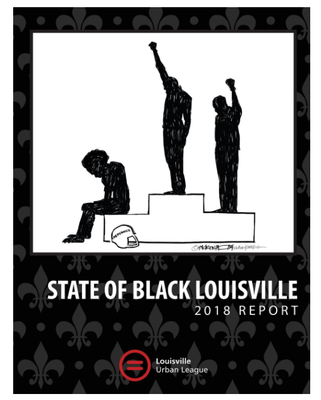SPHIS Home » News » UofL SPHIS Faculty Contribute to State of Black Louisville 2018 Report
UofL SPHIS Faculty Contribute to State of Black Louisville 2018 Report
The Louisville Urban League recently released a collection of essays highlighting the state of affairs of African Americas in the areas of jobs, justice, education, health, and housing. Leading figures and subject matter experts from the Louisville community furnished the State of Black Louisville 2018 Report with data, benchmarks, insightful analysis, reflective commentary, and thought leadership around both the disparities and improvements that African Americans face in these areas.
areas of jobs, justice, education, health, and housing. Leading figures and subject matter experts from the Louisville community furnished the State of Black Louisville 2018 Report with data, benchmarks, insightful analysis, reflective commentary, and thought leadership around both the disparities and improvements that African Americans face in these areas.
University of Louisville School of Public Health and Information Sciences faculty contributed to the health section of this collection.
Brandy Kelly Pryor, PhD, Center for Health Equity director and assistant professor, broke down 2017 Health Equity Report data to show how place and social systems matter to life outcomes. The data shows that the intersection between race, gender, and age is having an impact on the health of Black Louisvillians.
Dean Craig Blakely, PhD, MPH, and Bert Little, PhD, professor, discuss the substantial difficulties African Americans face in West Louisville. The life expectancy between residents of West Louisville (67 years of age) and eastern Jefferson County (82 years of age) varies drastically. The co-authors also compare the causes of death and social determinants of health for individuals living in West and East Louisville.
A hardcopy of the State of Black Louisville 2018 Report can be purchased for $20 (e-version available for $4.99). All proceeds benefit the Louisville Urban League.
The Louisville Urban League is a nonprofit, nonpartisan, community service organization dedicated to eliminating racism and its adverse impacts on the community. Its mission is to assist African Americans and other marginalized populations in attaining social and economic equality through direct services and advocacy in the areas of education, employment, housing, family development, and community development.






